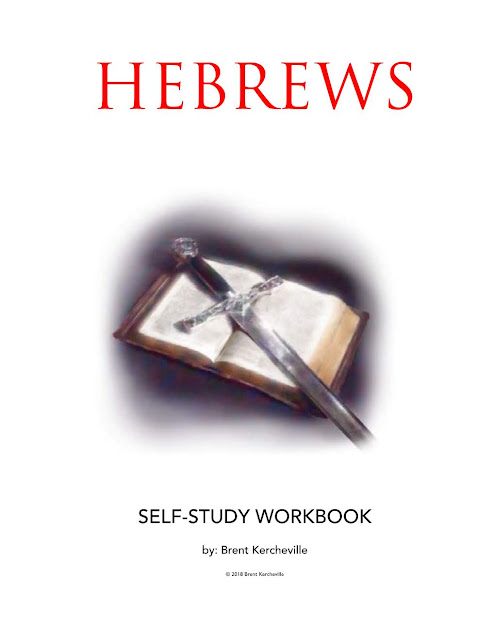Foreward
Foreward
Hebrews -Considerations Before Study –
Hebrews was
likely written before the destruction of Jerusalem 70 A.D.
The author
does not name himself, and cannot ultimately be identified. It stands to reason
that this person was well acquainted with Jewish leadership, and priestly
practices as it applied to the Jewish culture. Remember, the Jewish nation had
“kings” and religious leaders consecutively. Let’s also remember that Israel
was “occupied” and under Roman government rule.
Some Jews profited by this rule
and others wanted to see an overthrow of Roman influence, even if by violence.
It is
important to consider the everyday lifestyle living in a theocracy that is
dominated and influenced by a powerful ruthless government (Rome). Israel would
have been happy just to live by the law of Moses as a sovereign nation under a
selected king. This however is not the case.
As the book
implies, the Jews still clung fast to their history of receiving a covenant
with God through Moses. The writer uses this history to reason the importance,
power and authority of God’s christ and son, Jesus.
Why Was This
Letter Written?
Let’s not
forget, the messiah was expected to bring back a materially wealthy and
powerful Israel. For some, Jesus (in their estimation) did not do this.
The church was formed in an already formed church assembly. It was a splinter sect of the Jews. Imagine what it would be like to have someone tell us there is someone as important as Jesus that we must praise and worship as God. Even with overwhelming evidence, worshiping a new “authoritative” element to our worship could split us up, if not obliterate us completely (religiously).
These are the issues facing the people being addressed. It was imperative to reason with them from their own records and encourage them to move forward with this new(er) covenant. From a scan of the new testament word “temple”, we find that the idea of Christianity being a replacement covenant was not popular. Chaps: 21, 22, 23.
MWade
The church was formed in an already formed church assembly. It was a splinter sect of the Jews. Imagine what it would be like to have someone tell us there is someone as important as Jesus that we must praise and worship as God. Even with overwhelming evidence, worshiping a new “authoritative” element to our worship could split us up, if not obliterate us completely (religiously).
These are the issues facing the people being addressed. It was imperative to reason with them from their own records and encourage them to move forward with this new(er) covenant. From a scan of the new testament word “temple”, we find that the idea of Christianity being a replacement covenant was not popular. Chaps: 21, 22, 23.
MWade

Comments
Post a Comment